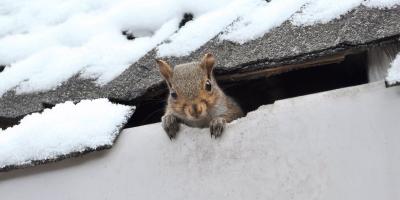Traveling For The Holidays? Follow These Tips To Avoid Bed Bugs

Bed bugs seem to have made a staggering resurgence in the past few years. According to a survey conducted by the National Pest Management Association, 99.6 percent of current pest control professionals have experienced a bed bug infestation in their line of duty. Just 15 years earlier, that figure was closer to 25 percent.
The increasing prevalence of bed bugs has frequent travelers concerned. Bed bugs have a frustrating tendency to hitchhike on travelers’ clothing and luggage. Fortunately, there are multiple steps you can take to help avoid these unwanted travel companions. Here are a few ways you can safeguard yourself from bed bugs during the holiday travel season:
Inspection
Thoroughly inspect any hotel room where you’ll be staying for the presence of bed bugs before you begin to unpack your belongings. This can usually be done without the aid of any tools, but a flashlight can certainly help. Check all around the bed frame and mattress — especially behind the pillows and near the headboard — for any signs of bed bugs or discolored spots, which are indicative of blood-feeding insects. Pull the bed sheets back to check the mattress seams, and take extra caution to inspect the corners of the mattress and bed frame.
Note that these pests won’t necessarily need to inhabit the bed to thrive, but a great proportion of a bed bug infestation will live within close proximity of the mattress. They can also hide under nightstands and lamps, in the pleats of upholstered furniture, on curtains, or even behind mirrors or artwork.
If you find any signs of bed bugs in your hotel room, notify management immediately. Relocate to a different room at least two floors away, or to an entirely different establishment.
Prevention
When checking into a hotel room, place your luggage on metal luggage racks or in an adjacent bathroom before inspecting your room for bed bugs, Bed bugs don’t particularly enjoy bathrooms, since there aren’t too many places for them to hide, and they don’t seem to like tile floors.
Continue to store your luggage on a metal rack or a desktop. Do not place your luggage on the bed or floor, and don’t leave clothes lying around. You may want to consider placing your luggage in large plastic bags for the duration of your trip to prevent bed bugs from crawling into your suitcase; many luggage retailers sell zip-up bags specifically for this purpose. This handy precaution can protect your luggage in the hotel room or at a relative’s house as well as during travel (bed bugs can hide in planes, trains, and automobiles, too).
Upon Your Return
It’s wise to take as many proactive measures as possible when you return home from traveling. It is recommended that you unpack your luggage directly into a washing machine; wash and dry your clothes on the hottest available settings. Note that simply washing your clothes is not an effective way to eliminate stowaway bed bugs, unless they are exposed to high heat. Alternatively, you may choose to unpack your luggage outdoors, on a balcony, or in a bathtub, since bed bugs have a difficult time crawling up smooth surfaces, and are easier to spot against a light background.
Store suitcases far away from your bedroom. Use a garment hand steamer on your bags before storing them in a basement or garage. Finally, vacuum your luggage thoroughly, and dispose of the vacuum bag immediately. For bagless vacuums, empty the dust collector into a plastic garbage bag, throw the bag out immediately, and wash the dust collector with hot water and detergent. Wash any vacuum extensions you may have used as well.
Bonus Tip: When traveling by car during the hot summer months or in areas with warm climates, leaving your luggage in the car for a day can work wonders in a pinch. If the interior of your vehicle reaches temperatures of over 120 degrees Fahrenheit, bed bugs should be dead within an hour.
Think you may already have a bed bug problem? The experienced professionals at JP Pest Services can get rid of blood-feeding insects from your home quickly and completely! Contact JP Pest Services to request a free residential estimate today!



